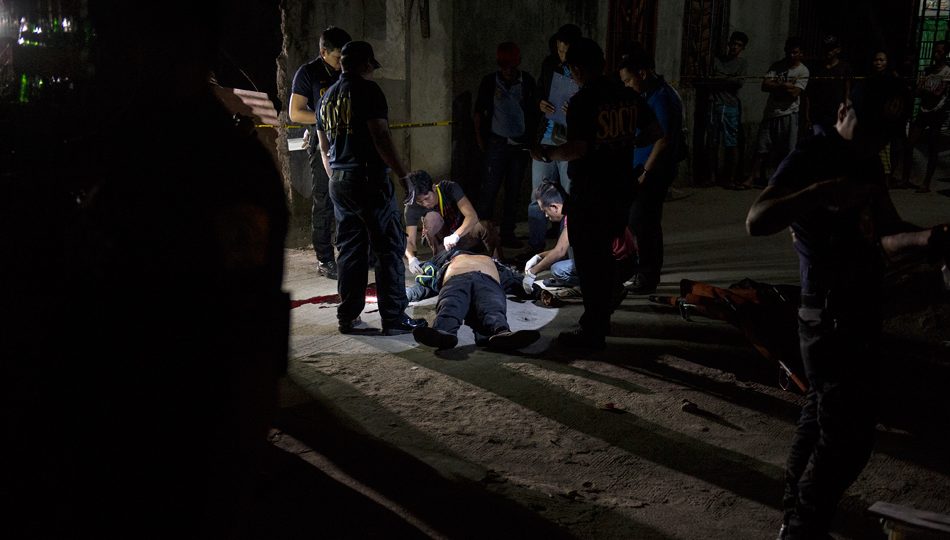“Convenient.”
This is how John Fisher, Human Rights Watch’s Geneva director described the definition of extrajudicial killings by Philippine government officials allied with President Rodrigo Duterte.
Presidential Communications and Operations Office (PCOO) Secretary Martin Andanar said there could not be “extrajudicial killings” in the country because there isn’t a law that allows “judicial” killings (i.e. the death penalty).
“We do not have judicial killing; we do not have capital punishment. It is prohibited to kill in our country. So why is there extrajudicial killing when there is no judicial killing? Why put ‘extra?’ So there are no extrajudicial killings in our country. There is no judicial killing, it is not state sponsored, it is not legal, it is not in our Constitution,” Andanar told GMA News’ radio affiliate dzBB yesterday.
The Commission on Human Rights’ now puts the number of drug-related killings in the Philippines at 13,000, while the Philippine National Police (PNP) only acknowledges 6,225 of them.
Of course if you buy the government’s somewhat tortured definition of an “extrajudicial killing,” that number magically becomes — zero.
“That’s a ridiculous claim. The number of extra-judicial killings in the Philippines is there. It’s a very convenient definition that manages to reduce the number to zero,” Fisher told ABS-CBN News.
He visited the Philippines last week to meet with human rights groups.
The Human Rights Watch official said the definition of extra-judicial killings is universal and cannot be tailor fit for the convenience of a particular government.
“The definition of extra-judicial killings is not up to the government. It’s a matter of international law. It stems from something as basic as right to life ,which is found in the Universal Declaration of Human Rights,” he stressed.
Fisher said that the actual definition of an extrajudicial killing can be found with a simple Google search: “An extrajudicial killing is the killing of a person by governmental authorities without the sanction of any judicial proceeding or legal process.”
According to Fisher, the more than 3,800 people killed during police operations, a number based on an interview Foreign Affairs Secretary Alan Peter Cayetano conducted with Al Jazeera, are examples of extrajudicial killings.
“All these cases, these are individuals who have been simply shot as they were going about their business. There’s no judicial process… That’s why they’re called extra-judicial executions because it’s without judicial proceedings,” Fisher said.
With reports from ABS-CBN News





Reader Interactions